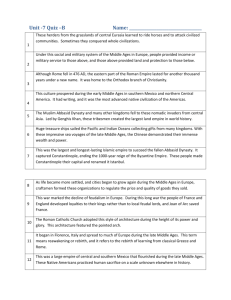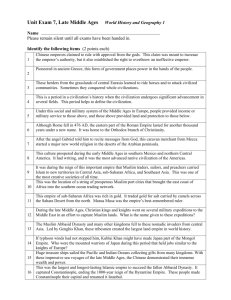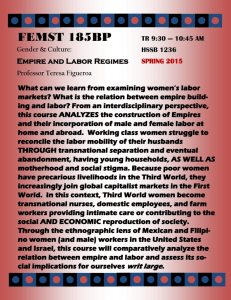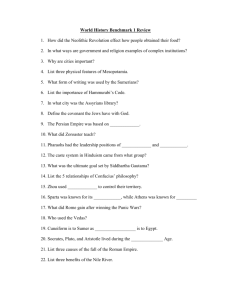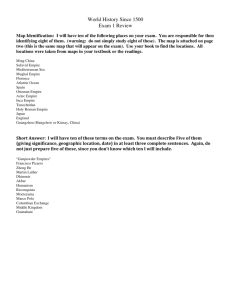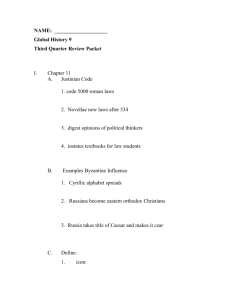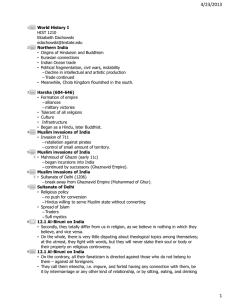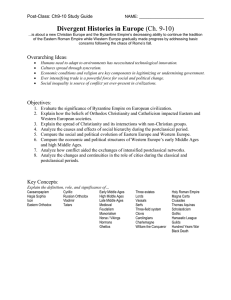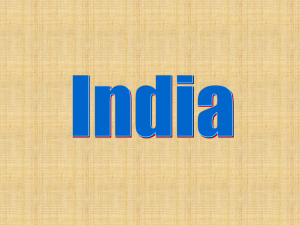7A quiz
advertisement
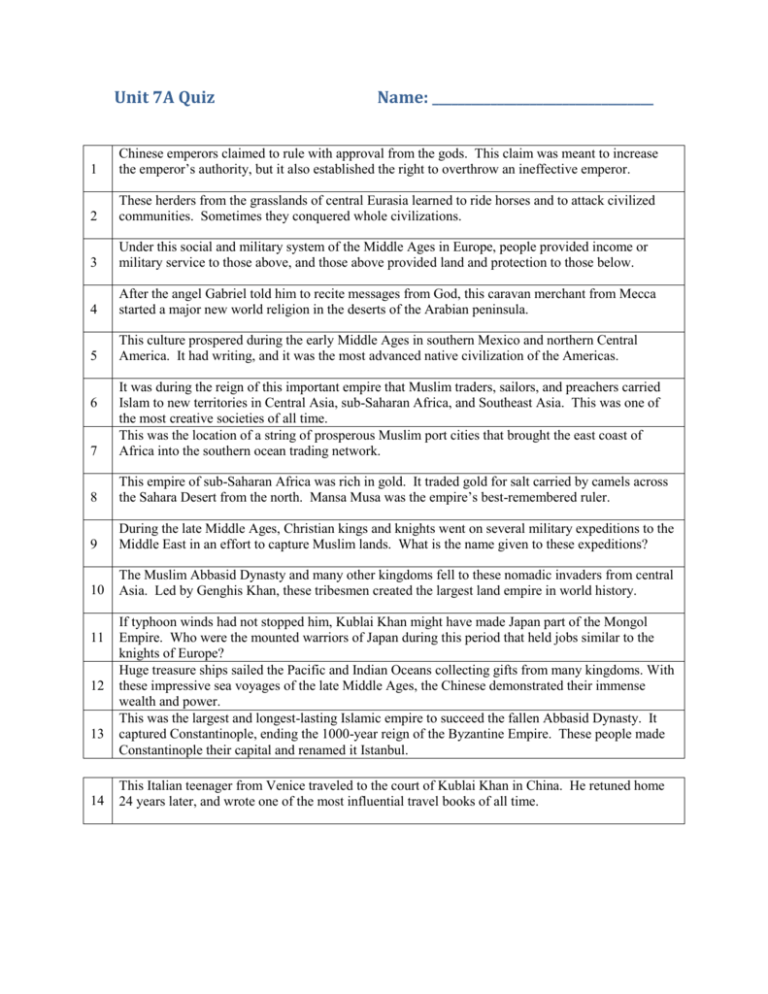
Unit 7A Quiz Name: __________________________________ 1 Chinese emperors claimed to rule with approval from the gods. This claim was meant to increase the emperor’s authority, but it also established the right to overthrow an ineffective emperor. 2 These herders from the grasslands of central Eurasia learned to ride horses and to attack civilized communities. Sometimes they conquered whole civilizations. 3 Under this social and military system of the Middle Ages in Europe, people provided income or military service to those above, and those above provided land and protection to those below. 4 After the angel Gabriel told him to recite messages from God, this caravan merchant from Mecca started a major new world religion in the deserts of the Arabian peninsula. 5 This culture prospered during the early Middle Ages in southern Mexico and northern Central America. It had writing, and it was the most advanced native civilization of the Americas. 7 It was during the reign of this important empire that Muslim traders, sailors, and preachers carried Islam to new territories in Central Asia, sub-Saharan Africa, and Southeast Asia. This was one of the most creative societies of all time. This was the location of a string of prosperous Muslim port cities that brought the east coast of Africa into the southern ocean trading network. 8 This empire of sub-Saharan Africa was rich in gold. It traded gold for salt carried by camels across the Sahara Desert from the north. Mansa Musa was the empire’s best-remembered ruler. 9 During the late Middle Ages, Christian kings and knights went on several military expeditions to the Middle East in an effort to capture Muslim lands. What is the name given to these expeditions? 10 The Muslim Abbasid Dynasty and many other kingdoms fell to these nomadic invaders from central Asia. Led by Genghis Khan, these tribesmen created the largest land empire in world history. 6 11 12 13 14 If typhoon winds had not stopped him, Kublai Khan might have made Japan part of the Mongol Empire. Who were the mounted warriors of Japan during this period that held jobs similar to the knights of Europe? Huge treasure ships sailed the Pacific and Indian Oceans collecting gifts from many kingdoms. With these impressive sea voyages of the late Middle Ages, the Chinese demonstrated their immense wealth and power. This was the largest and longest-lasting Islamic empire to succeed the fallen Abbasid Dynasty. It captured Constantinople, ending the 1000-year reign of the Byzantine Empire. These people made Constantinople their capital and renamed it Istanbul. This Italian teenager from Venice traveled to the court of Kublai Khan in China. He retuned home 24 years later, and wrote one of the most influential travel books of all time.
